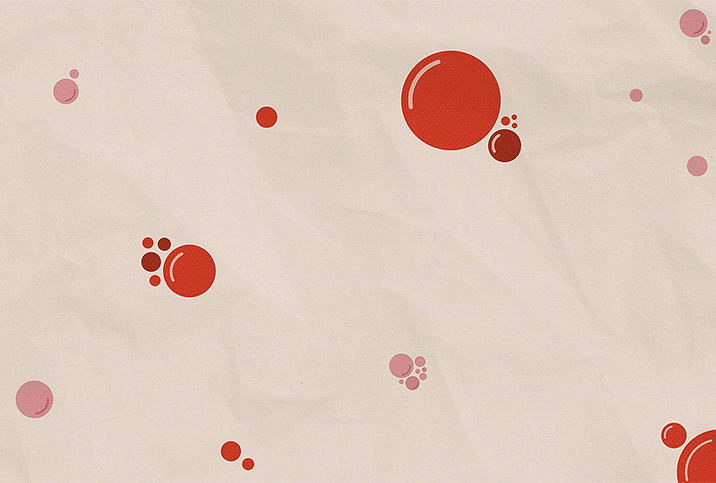Overview of Herpes Simplex: Symptoms and Diagnosis

Responsible for oral and genital herpes, the herpes simplex virus (HSV) exists in two forms: HSV-1 is usually associated with oral herpes (responsible for 80 percent of oral herpes cases); HSV-2 is most often the cause of genital herpes.
While both forms are prevalent, HSV-1 is a particularly common infection, affecting an estimated two-thirds of the global population under 50 years old and 50 to 80 percent of adults in the United States. Genital herpes, by contrast, affects about 17 percent, or 1 in 6 American adults ages 14 to 49.
How herpes spreads
Oral herpes can be spread by skin-to-skin contact with an infected individual, such as kissing (including on the cheek) and through oral sex.
Genital herpes is a sexually transmitted disease (STD) that can be contracted through vaginal, anal or oral sex with an infected person. The disease is most easily spread by contact with a herpes sore on the mouth or genitals, but can also be contracted from saliva or genital secretions, or general contact with the oral or genital areas. It can also be passed by receiving oral sex from someone infected with oral herpes.
Despite common misconceptions, it is possible to contract herpes from someone with no visible sores or someone who does not know they are infected. The risk of transmission is higher during an active outbreak with visible sores.
It is also possible to contract the virus while sharing objects that have come into contact with skin, sores, saliva, or secretions—therefore, sharing drinks, utensils, and sex toys should be avoided during an outbreak. Herpes cannot be spread from contact with bedding, toilet seats, swimming pools, hot tubs, soap or towels.
Symptoms of oral herpes
The initial, or primary, infection is typically the worst stage in cases of both oral and genital herpes. Symptoms appear after a two- to 12-day incubation period following contact with the virus. An initial infection of oral herpes can cause flu-like symptoms, including fever, fatigue, headache and muscle aches, as well as sores (known as cold sores) on or around the lips, throughout the mouth (gums, tongue, inside of the cheeks, roof of the mouth) and in the throat.
Recurrent infections may result in mild to no symptoms, and some individuals have no subsequent outbreaks after the initial infection. Those who do have later outbreaks may experience redness and heat or itching around the lips or under the nose, followed by fluid-filled blisters, which become sores after rupturing. Sores last four to six days, at which point they crust over and begin to heal. They can be very painful and make eating or drinking difficult. Gum redness and bleeding can also occur.
Swollen and tender lymph nodes in the neck are also common. In some cases, herpes can cause painful throat and tonsil infections. A person is most infectious when exhibiting fluid-filled blisters, as the fluid is highly contagious.
While symptoms can typically be managed at home, they may require medical care if they lead to dehydration, signs of which include decreased and darker urine, drowsiness, dry mouth and irritability.
Sores appearing on an infant can be serious and require immediate medical attention.
Symptoms of genital herpes
As with the oral form, the initial infection of genital herpes may cause flu-like symptoms within the first two weeks of contact with the virus. Genital pain, itching or tenderness is common, and small white blisters or red bumps may appear in conjunction with those symptoms. Sores can present on the buttocks and thighs, urethra and anus, as well as the penis and scrotum in men, and external genitalia, vagina and cervix in women.
If blisters rupture, they can become ulcers that make urination painful. Symptoms typically last two to three weeks per recurrence, and ulcers will eventually scab over and heal. While some people experience noticeable symptoms, blisters and bumps can be very small and easily missed, and many infected individuals don't know they have the disease.
Testing and diagnosis
In many cases, a diagnosis of herpes is made solely based on the clinical picture (that is, the description of symptoms, appearance and location of blisters). However, signs and symptoms can easily be missed or mimic other infections, so they don't get noticed. For example, oral herpes can look like an allergic reaction or acne, and genital herpes may look like gonorrhea, a yeast infection or bacterial vaginosis; a clinician considering these conditions will likely be considering herpes, too.
If you are experiencing any symptoms that might possibly be herpes, you should see a doctor who can confirm the diagnosis so that you don't unknowingly spread the disease. After asking questions about your recent activities and conducting a thorough physical examination, your doctor can determine if further testing is required, although usually a physical alone is enough to move forward with treatment.
In some cases, such as when the virus impacts other organ systems, definitive diagnosis of oral or genital herpes is made via a virus culture (called a PCR, or polymerase chain reaction test) or by blood test or biopsy. Serologic assays confirm which type (HSV-1 or HSV-2) of herpes an individual has, and are most commonly used when a patient experiences recurrent or atypical symptoms with a negative PCR or culture, or when the patient has been diagnosed without laboratory confirmation or has an infected partner.
Treatment
There's currently no cure for either type of herpes. Once infected, an individual remains so for life, though long-term symptoms vary significantly from person to person. Treatment options depend on various factors, including age, physical health and tolerance to medications and other therapies.
Both oral and genital herpes are most often treated with antiviral medications. Initial outbreaks are treated with antivirals (acyclovir, famciclovir or valacyclovir) for seven to 10 days. Topical antiviral ointments (Zovirax, Abreva) are commonly prescribed to combat infections, while topical anesthetics (such as lidocaine) will alleviate discomfort and pain.
Over-the-counter medications can also be helpful, such as acetaminophen and ibuprofen. Drinking sufficient fluids is essential to prevent dehydration. Rarely, oral or intravenous antiviral medications are used, typically for immunocompromised individuals and infants under six weeks old. Dehydration and severe infections may require hospitalization.
Management over time
Long-term care of oral and genital herpes may involve antiviral suppressive treatment (acyclovir or famciclovir twice daily, or valacyclovir once daily) to reduce the frequency of recurrences, or only during outbreaks (episodically) to shorten the duration of symptoms. A doctor can discuss the benefits of chronic suppressive versus episodic treatment and which may be best for you, depending on what symptoms you are experiencing and their frequency and severity, as well as your personal preferences.
The majority of patients—70 to 80 percent of those who have frequent recurrences—taking suppressive therapy experience fewer and less severe outbreaks over time. Transmission risk from an infected mother is very high during labor; treatment during pregnancy can help prevent a genital HSV outbreak around the time of delivery.
It is essential you follow your doctor's treatment plan in order to reduce the frequency and/or severity of flare-ups. If (or when) you have a recurrence, take all medications as prescribed by your physician, including those to control pain and fever.
It goes without saying that you should never kiss someone while you have an oral herpes outbreak or engage in sex while experiencing genital herpes symptoms. Even if you're asymptomatic, it's only fair to let a partner know that you have the disease.
Stay hydrated during outbreaks—drinking with a straw can minimize the pain of oral herpes and boost your ability to stay on top of liquids. Know the signs of dehydration, and be on the lookout for them. Take good care of yourself: Get plenty of rest, practice stress relief, eat a balanced diet high in fruits, vegetables and whole grains, and exercise if you are able.
The causes of recurrence are not fully understood by the medical community, but a number of factors have been associated with increased risk for the reemergence of symptoms. These include illness, fever, injury, surgery, stress, menstruation and prolonged exposure to sunlight. Antiviral treatment beginning the day before surgery can prevent outbreaks caused by a procedure. Prioritizing health and self-care and minimizing sun exposure can reduce the chances of recurrence.
Despite the outdated stigma surrounding this STD, herpes is an incredibly common infection that most people experience in their lifetime, whether they're aware of it or not. Knowing the common signs and getting treated early on can help protect partners, decrease symptoms and prevent herpes from negatively impacting your life.

















